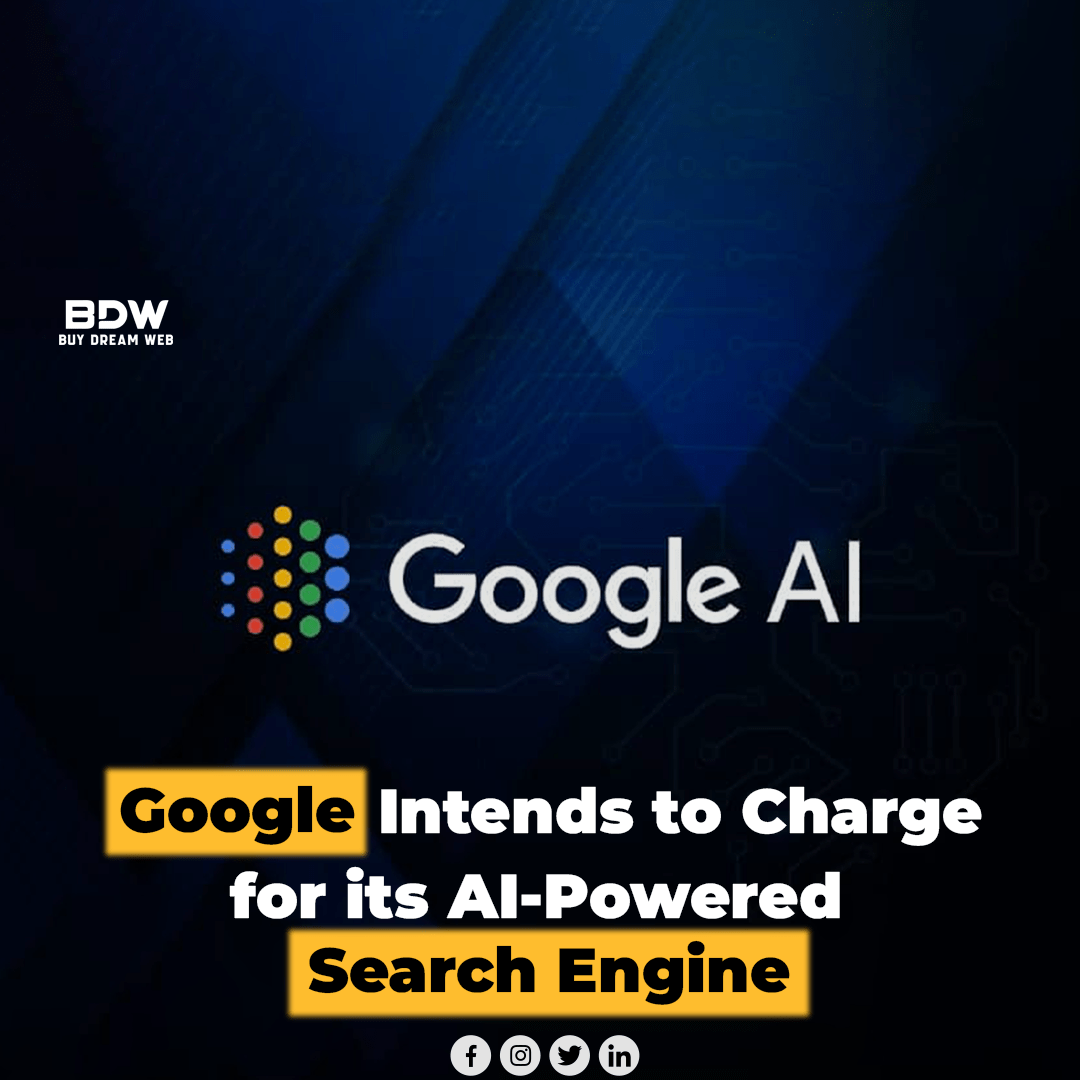Search Revolution or Paywall Labyrinth? Google Considers Charging for AI-Powered Search
The landscape of search is facing a potential tremor. Google, the undisputed king of online search, is reportedly exploring ways to charge for its upcoming AI-powered search engine. This move, if implemented, could have far-reaching consequences, raising questions about accessibility, innovation, and the future of information retrieval. Let’s delve deeper into this development, analyze the potential implications, and explore what it signifies for the way we search for information online.
A Paid Path to Knowledge? Unveiling Google’s Potential Paywall
Recent reports suggest Google is considering charging for access to its next-generation search engine, codenamed “Search Generative Experience” (SGE). This engine leverages advanced AI to potentially offer a more comprehensive and nuanced search experience, including:
- In-depth Answer Generation: SGE might go beyond providing links and aim to directly answer user queries with AI-generated summaries and insights.
- Personalized Search Results: The engine could personalize search results based on user history and preferences, potentially offering a more tailored search experience.
- Enhanced Search Capabilities: SGE might integrate advanced functionalities like voice search refinement or real-time information updates.
However, access to these AI-powered features might come at a cost, creating a potential paywall for this new level of search functionality.
Beyond the Headlines: Potential Implications of a Paid Search Engine
The introduction of a paid search engine from Google raises several concerns:
- Accessibility Concerns: A paywall could limit access to the most advanced search functionalities, potentially widening the digital divide and hindering equal access to information.
- Innovation Stifled? If the most advanced search features become paywalled, it could stifle innovation in the broader search engine landscape by restricting access to cutting-edge AI models.
- Erosion of Trust: Charging for a service that was previously free could erode user trust in Google and potentially fuel a search engine arms race as competitors position themselves as free alternatives.
Nuances and Considerations: Not a Binary Choice
While the headlines might scream “paywall,” there are some nuances to consider:
- Freemium Model: Google might offer a freemium model, providing basic search functionalities for free and charging for access to premium AI-powered features.
- Targeted Audience: The paid search engine might be targeted towards specific user groups like businesses or research institutions, justifying the cost with advanced functionalities.
- Focus on Transparency: If Google goes down the paid search route, ensuring transparency about pricing, features, and the rationale behind the decision will be crucial.
A Search for a Sustainable Future: Balancing Innovation and Access
The potential for a paid search engine from Google highlights the need for a nuanced discussion about the future of search:
- The Cost of Innovation: Developing and maintaining cutting-edge AI models requires significant resources. Finding a sustainable way to fund this innovation is critical.
- The Importance of Open Access: Ensuring equitable access to information, regardless of socioeconomic background, remains paramount in the digital age.
- The Role of Regulation: Governments and regulatory bodies might need to play a role in ensuring a healthy search ecosystem that fosters innovation while promoting open access to information.
The Final Search Query: A Crossroads for Google and the Future of Search
Google’s exploration of charging for its AI-powered search engine marks a potential turning point in the way we access information online. It raises concerns about accessibility and innovation but also highlights the challenges of funding future advancements. Moving forward, Google needs to carefully consider the potential impact of a paywall and explore alternative models that balance innovation with open access. Collaborative efforts amongst search engine developers, policymakers, and users will be crucial in shaping a future where advanced search functionalities are accessible and the flow of information remains unimpeded.
This blog offers a springboard for further discussion. Here are some prompts to consider:
- What are some alternative ways to fund innovation in the search engine landscape besides a paywall model?
- How can governments and regulatory bodies ensure a balance between fostering innovation and maintaining open access to information in the digital age?
- What role can users play in shaping the future of search engines and promoting responsible data practices?
By working together, we can ensure the future of search remains a powerful tool for discovery, learning, and the free flow of information for all.
Article Link:https://www.samaa.tv/

 +44 747720 4635
+44 747720 4635


Comments are closed